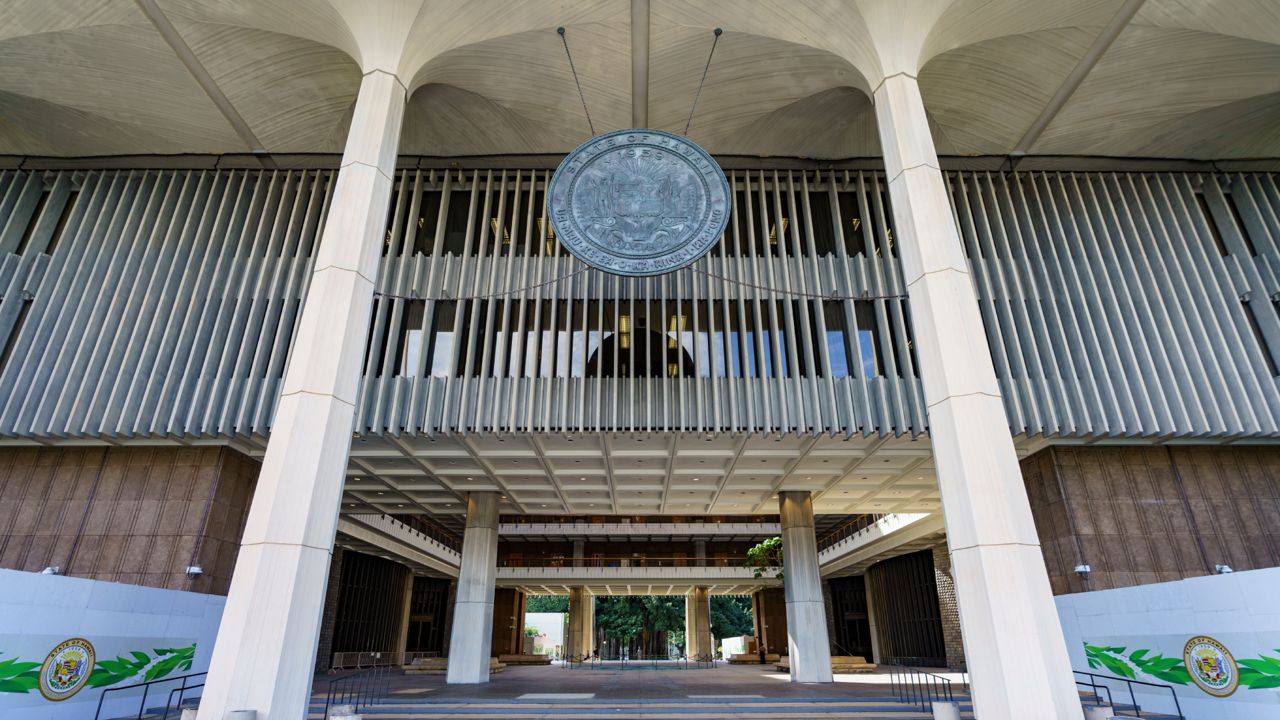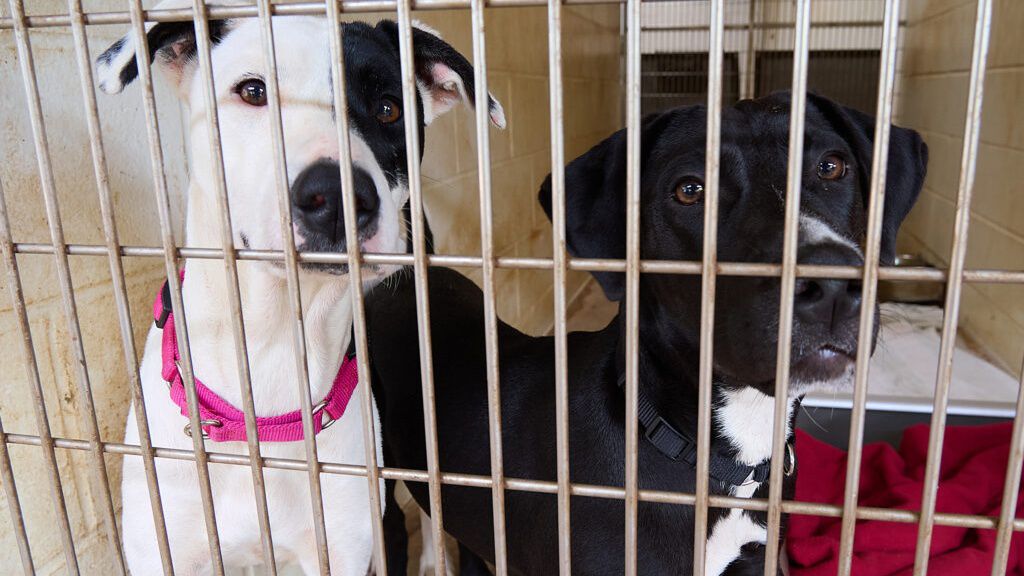The 32nd Hawaii State Legislature convenes Wednesday with several new faces, a litany of familiar issues to tackle and pressure from a new but familiar governor eager to make a strong first impression.
This year’s Legislature will be hard-pressed to match the activity of last session, during which lawmakers under fire for a less-than-productive 2021 session and empowered by a surprise $2 billion surplus passed hundreds of measures to revive shuttered programs and services, resolve longstanding funding issues with the Office of Hawaiian Affairs, invest heavily in the Department of Hawaiian Home Lands, and address a host of issues from affordable housing to broadband infrastructure to climate-change mitigation.
It also passed popular legislation establishing a new $18 an hour state minimum wage and funding a tax rebate of up to $300 per taxpayer.
While the economic forecast calls for more subdued growth, the ongoing recovery of the tourism industry and other positive indicators means legislators are still in a position to invest meaningfully in programs, policies and initiatives that address affordable housing, homelessness, education, health care, infrastructure, climate-change mitigation and other high-priority issues.
The challenge will be taken up by a legislature welcoming its largest freshman class in nearly 20 years, with 16 new members in the House and two in the Senate.
The session will serve as an initial sizing-up between a pair of battle-tested legislative leaders—House Speaker Scott Saiki and Senate President Ron Kouchi—and Gov. Josh Green and Lt. Gov. Sylvia Luke, who moved to the executive branch with a combined 38 years of experience as state legislators.
Green’s stated ambitions to eliminate the state excise tax for food and medicine and create a new visitor fee to fund conservations effort received an early check from the Saiki and Kouchi, an indication perhaps that Green’s promise of a historically productive partnership may take some time to establish.
In announcing their priorities entering the new session, the Democratic majorities in both chambers identified housing as a top concern.
“The State Legislature’s past investments will yield over 7,000 affordable housing units over the next few years,” the House Majority Caucus stated in a release issued earlier in the week. “Due to the length of time it takes to develop housing, supply chain issues, and inflation, the House believes financing must be in place to keep the pipeline of affordable housing projects moving forward.”
The Senate Majority meanwhile laid out its multi-pronged strategy for dealing with the statewide shortage, committing planned housing projects that provide residents with affordable rent or purchase options; an increase in transit-oriented development around major infrastructure projects across the state; workforce housing solutions to support residents employed in high demand sectors; opportunities for residents in middle-income brackets to purchase homes; legislation that makes affordable housing remain affordable in perpetuity; and collaboration with the counties to reform the permitting process for affordable housing development.
The House majority also announced that it would seek financial relief for low-income families; improve mental health services and enhance natural resource management to mitigate the impact of climate change.
The Senate majority’s to-do list included addressing teacher shortages, supporting early childhood education initiatives, developing health care specialty programs in higher education; closing health care gaps; promoting agriculture and aquaculture resources; linking key industries with education and workforce development; improving infrastructure, including energy delivery to rural communities; exploring carbon offsets, carbon-capture technology and a carbon tax; and improving water resource infrastructure and wastewater management.
In recent weeks, legislative caucuses and other groups have previewed legislation to be introduced this session.
Sen. Karl Rhoads announced he would introduce a bill establishing a new public funding program for political campaigns that would help to lessen the influence of PACs, special-interest groups, businesses and other big-money contributors. Under the program, participating candidates would only be allowed to accept individual donations of $5 or less to qualify for public funding ranging from $20,000 for Office of Hawaiian Affairs candidates to $2.5 million for gubernatorial candidates. Candidates would need to reach a minimum number of individual donations, depending on their prospective office, to qualify.
The same day, Reps. John Mizuno and Daniel Holt announced they would introduce a bill that would authorize Hawaii’s first legal gambling establishment.
In the latest iteration of the perennial effort to introduce legalized gambling to Hawaii (with Utah the only other state to ban all forms of gambling), the bill would allow a brick-and-mortar facility consisting of a sportsbook and a poker room. The tax revenue generated would be used to help fund Department of Hawaiian Home Lands housing projects and the Honolulu Police Department’s efforts to crack down on illegal gaming rooms.
“We believe this can be a significant benefit to the people of Hawaii,” Mizuno said at a news conference. “One billion dollars goes to Las Vegas, Nevada, every year from our local people. If we can capture just 25% of that money, we can do great things.”
On Tuesday, the Keiki Caucus, a broad coalition of legislators, child and youth advocacy groups and individuals, announced its 2023 legislative package and children’s policy agenda.
The package includes a bill that would expand preschool programs in public schools, which proponents say will help families who can’t afford the high cost of most private preschools.
“Investing in public preschool now will immediately benefit thousands of keiki and their families who don’t have otherwise the means to provide for high-quality early education,” said Hawaii State Teachers Association president Osa Tui. “It will also benefit our state in the long run when these thousands of keiki who are afforded the opportunity to attend public preschool in their neighborhoods have a better chance to become successful, productive individuals in society tomorrow.”
The caucus also supports legislation that would provide educators with resources and training to respond to reports of sex trafficking; provide supplemental payments to lower-wage early childhood development and care workers who serve children age 5 and under; adopt “Erin’s Law” in Hawaii, which would establish a child sexual abuse prevention program in public schools; and ban flavored tobacco products.
Last year, the Legislature passed a measure banning flavored tobacco products, which are marketed toward younger users. However, then-Gov. David Ige vetoed the bill because of the broad exemption it allowed for products currently under review by the Food and Drug Administration.
The 2023 session officially kicks off at 10 a.m., as required by the state Constitution, with opening floor sessions in the House and Senate. The sessions are open to the public and will be streamed live on each chamber’s official YouTube channel. The House session will also be broadcast on Olelo Channel 49.
Officials expect a large in-person turnout and motorists are encouraged to carpool or use public transportation. (All public meetings this session will be conducted in-person and online.)
While public parking at the State Capitol lot has reopened after a two-year hiatus during the pandemic, it will not be available on opening day. Nearby lots include the State Department of Health, Kalanimōkū Building Parking Lot, and Iolani Palace. Metered parking is available along King St. and Richards St.
“With the reopening of the State Capitol and a return to in-person public meetings this session, the Capitol remains accessible for our residents,” Saiki said.








